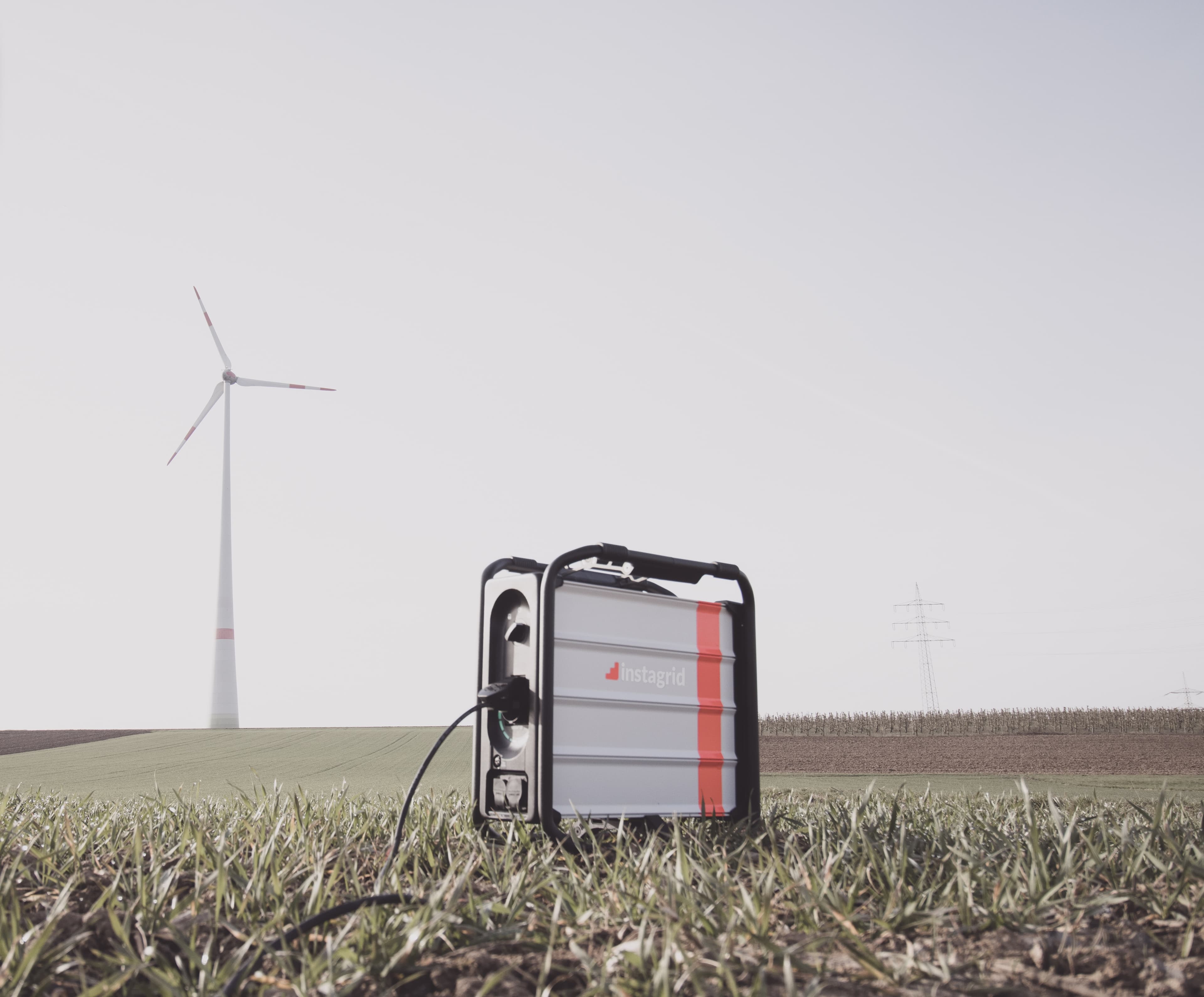Earlier this month, we announced that Instagrid had become certified by B Corp, joining the ranks of companies and organisations around the world which meet high standards of social and environmental performance, accountability, and transparency.
Here are some insights from the Instagrid team and our partners on our journey to B Corp Certification.
--
What impact did you want to achieve when you started Instagrid?
Six years ago, Instagrid was founded with a bold vision of decarbonising and democratising mobile off-grid energy provision, replacing heavily polluting gas and diesel generators.
When we founded the company, it was clear that we wanted to build it to the highest possible ESG standards. Our recognition as a B Corp is a testament to our measurable impact during this time, and our strong ongoing commitment to creating sustainable and innovative energy solutions.
Andreas Sedlmayr, Co-CEO & Co-Founder
When we started looking closer, we were puzzled about the scale of the problem we were tackling. We learned that more than 1 billion people worldwide are working off-grid, and that more than 50 million new small combustion engines get built every year. What’s more, each of these engines can cause as many harmful emissions as 100 modern cars, contributing to millions of deaths through bad air quality every year.
Sebastian Berning, Co-CEO & Co-Founder
From the beginning, the concept of creating impact was very much embedded in our company's DNA. Our overall aim has been to reduce 104 kt of CO2e (CO2 equivalents) by the end of 2023 – however, Instagrid also looks at impact from both from a product and a people point of view. Product impact means that we're looking to increase circularity as much as possible. Therefore, we work closely with our product designers, engineers, and product owners.
Sarah Fitchtner, Head of ESG Strategy & Sustainability
How does sustainability influence the design process for our portable power supplies?
The challenge of designing a sustainable product is that you must consider several different aspects, and then boil them all down into one simple, accessible product. There are three main areas to consider -- the first being what kind of materials you use. This includes whether or not they are recyclable, and how you build them into your product.
The second concerns people – which naturally includes the end user, as they are the main customer. Here usability, the entire user experience, and ergonomics are important. However, you must also consider the people working on the product itself. This includes those who are manufacturing, assembling, and shipping the product – everyone involved in logistics.
Finally, the design language itself is a crucial area to consider. This is the door opener for every good product, enabling the product to have a positive impact on both people and environment.
Felix Fuchs, Head of Design
How does Instagrid support the overall well-being of its employees and overall social sustainability of its activities?
When it comes to creating a positive impact on people, we are of course concerned about our colleagues and aim to create a highly diverse and inclusive work environment. Instagrid upholds human rights within our own company, as well as in our overall value chain.
We aim to collaborate with our suppliers very closely and at eye-level. Having open, transparent communication on the different social concerns that can arise in our work is an integral part of the overall conversation on how to improve our environmental performance as a company.
Sarah Fitchtner, Head of ESG Strategy & Sustainability
Satisfied employees are the heartbeat of Instagrid. When they feel valued, supported, and engaged, they can contribute more effectively towards our mission to reduce emissions. We invest in career development because it's a win-win. Employees gain new skills, and we benefit from the enhanced expertise. A culture of growth attracts top talent and keeps our workforce empowered. At Instagrid, we believe that satisfied employees create a thriving workplace.
Theresa Falge, Head of People & Culture
What attracted you to invest in Instagrid, and how does this company align with your mission as a purpose-driven investor?
Instagrid is an exciting example of the world-leading European climate-tech companies that Ontario Teachers' Pension Plan (OTPP) and Teachers’ Venture Growth (TVG) are here to get behind. No green premium, no subsidy -- just great products that are not only better for the environment but also more powerful, more functional, and cheaper than existing tools.
OTPP invests on behalf of 340.000 members, so investing with purpose and with future generations in mind is at the heart of what we do. More than that, we see a huge opportunity for high-impact businesses to drive outsized value by addressing the world's most pressing challenges.
Kieran Mahanty, Director - Ontario Teachers’ & TVG
How do you ensure that the sustainability data you gather is relevant?
Throughout our journey, we've always aimed to put our impact into numbers. This way we can more clearly show our progress as a company, while delivering robust data to our customers.
They can then become empowered and understand the true impact that they have at their workplaces -- by replacing combustion generators with our innovative products.
Becoming a certified B Corp is a major success for us as a company, and puts a huge emphasis on the work that we have done over the last few years. We have made great strides towards replacing combustion generators globally and cutting local air pollution levels, making air breathable again and improving the workplaces of people around the world.
In fact, alongside our customers Instagrid has been able to effectively improve local air quality by eliminating 48 tons of local air pollutants (NOx).
The problem that we are solving at Instagrid is enormous, and global. This calls for collective action and strong partnerships. That’s why we're happy to now be a part of this wider network of like-minded, impactful organizations. Together we can tackle these challenges and make a collective impact on the world.
Sarah Fitchtner, Head of ESG Strategy & Sustainability
